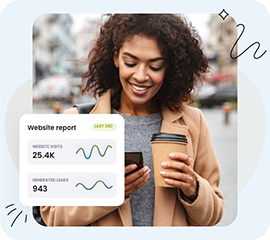Performance tuning your WordPress site yields better performance and improves the experience visitors receive. This article describes several ways to improve WordPress site performance.
The basics
The easiest place to start when optimizing a WordPress site for optimal performance is with the content itself.
- Set up image files correctly:
- Size the images correctly before loading them into WordPress. Sure, WordPress can automatically scale images, but when your site has a lot of images, you’ll see a corresponding slowdown in performance as it scales images. On pages with a lot of images, that means page load times far exceeding 2 seconds.
- Eliminate unnecessary images. While it’s true that a picture can speak a thousand words, good writing can paint a perfect picture in someone’s mind.
- Optimize image sizes using WP Smush (see How to use Smush Image Compression for WordPress for more information).
- Use a content delivery network (CDN) to store and serve site images. CDNs are high-performance systems designed to serve image content faster than your WordPress server can.
- Combine and minify CSS and JavaScript files. By combining CSS files into a single CSS file for your site, WordPress only loads that one file when displaying a page. You can similarly combine JavaScript files. Minifying refers to concatenating all the CSS and JavaScript code into essentially one long string of characters with no returns. Better yet, use a plugin to do this for you (see the Plugins section below.)
- Minimize the number of plugins your site uses. While plugins are amazingly convenient, they consume server resources. Make sure you use only the plugins that you need.
Use caching plugins
Caching plugins make use of fast RAM on your server to store frequently accessed pages and posts. For high-traffic servers, caching plugins are a must. HostPapa recommends the W3 Total Cache plugin to help you maximize the use of caching to accelerate WordPress site performance. W3 Total Cache can handle various caching options, including OpCode caching to reduce code load times.
Theme optimization
If you are a theme developer or are building your custom theme, there are several techniques you can leverage to enhance WordPress performance:
- Reduce and optimize database queries. Identify static values that can be hard-coded into your themes. Meta items such as your site title and the charset used on the site are easy wins here.
- Hard-code menus. In most cases, once the navigation menu is set up, it seldom changes. Hard-code your menus to reduce page load times and database queries. Avoid using functions like wp_list_pages(), which can create quite a bit of latency on large sites.
If you need help with your HostPapa account, please open a support ticket from your dashboard.
